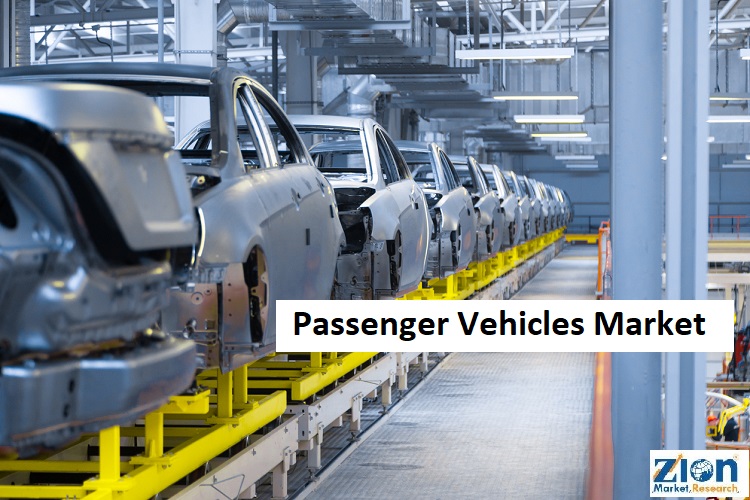Introduction of Passenger Vehicles Market:
The passenger vehicle market has always changed with consumer tastes, technology, and environmental concerns. Recent trends have transformed the industry, making it more sustainable, connected, and convenient. This article examines how passenger vehicle market changes are shaping transportation.
Electric Revolution:
The rise of electric vehicles (EVs) has emerged as a pivotal transformation in the passenger vehicles market. In today’s era of heightened environmental consciousness and an ever-growing desire for sustainable transportation options, electric vehicles (EVs) have emerged as a highly sought-after solution.
The escalating concern surrounding climate change has propelled the popularity of EVs to new heights.
Discover how major automakers are making significant investments in cutting-edge research and development initiatives, resulting in remarkable advancements in battery technology.
These groundbreaking innovations are paving the way for longer driving ranges and more accessible pricing options, revolutionising the automotive industry.
Stay informed about the latest developments and embrace the future of electric vehicles.
The electric vehicle (EV) market is experiencing remarkable growth, with governments across the globe offering various incentives to encourage the widespread adoption of electric vehicles.
Autonomous Driving:
Technology that allows cars to drive themselves could be another game-changer in the market for passenger automobiles.
Cars that drive themselves were previously thought to be a pipe dream, but they are quickly becoming a reality.
Businesses such as Tesla, Waymo, and Uber are leading the charge to create technology for autonomous vehicles.
These cars have the potential to improve overall road safety, cut down on traffic congestion, and provide a more pleasant experience for commuters.
However, significant obstacles, such as those posed by regulations and public acceptance, still stand in the way of widespread use.
Shared Mobility:
Shared mobility services, including popular ride-hailing and car-sharing platforms, have emerged as a disruptive force, revolutionising the conventional concept of car ownership.
Millennials and urban dwellers, especially those seeking cost-effective and flexible solutions, are increasingly adopting these services as a viable alternative to car ownership.
The current shift in the automotive industry has compelled automakers to delve into novel business models, such as forging strategic alliances with ride-hailing enterprises and creating their own innovative mobility solutions.
Discover the remarkable benefits of shared mobility, a revolutionary concept that not only effectively decreases the overall vehicle count on our bustling roads but also actively promotes the adoption of cutting-edge electric and autonomous vehicles within these dynamic fleets.
Connectivity and Digitalization:
The passenger vehicles market has been completely transformed by the seamless integration of connectivity and digitalization.
In today’s automotive landscape, contemporary vehicles boast cutting-edge infotainment systems, state-of-the-art voice assistants, and seamless smartphone integration.
These remarkable features not only facilitate effortless connectivity but also elevate the overall driving experience to unprecedented heights.
In addition, the implementation of vehicle-to-vehicle (V2V) and vehicle-to-infrastructure (V2I) communication systems plays a crucial role in facilitating the exchange of real-time data.
This seamless data sharing mechanism not only aids in the effective management of traffic but also enhances safety measures and promotes efficient energy consumption.
Competent Players
Qualitative and quantitative research on the global passenger vehicle market and key rivals’ development strategies included in the report. The research analyses the market’s top players and their competitiveness.
Some of the main players in the global passenger vehicles market include:
- Daimler AG
- General Motors
- AUDI AG
- TOYOTA MOTOR CORPORATION
- Ford Motor Company
- Groupe PSA
- SAIC Motor Corporation Limited
- Tesla
- Groupe Renault
- BMW AG
- Hyundai Motor Company
- BYD Company Ltd.
- Continental AG
- Kia Motors Corporation
- Nissan Motor Co. LTD.
- Volkswagen AG
- AB Volvo and Honda Motor Co. Ltd.
Sustainability and Environmental Concerns:
The passenger vehicles market is being significantly influenced by environmental factors. In today’s rapidly evolving automotive landscape, the implementation of more stringent emissions regulations has become a driving force behind the investments made by automakers in environmentally friendly technologies and alternative fuels.
In addition to the ever-growing popularity of electric vehicles, hydrogen fuel cell vehicles have emerged as a highly promising zero-emission alternative. In addition, automotive manufacturers are increasingly integrating eco-friendly materials, including recycled plastics and bio-based elements, into the manufacturing process of vehicles.
This strategic move not only helps in minimising their ecological impact but also contributes to a more sustainable future.
Conclusion:
The passenger vehicles market is currently experiencing a significant transformation, propelled by various influential factors such as the electric revolution, autonomous driving technology, shared mobility services, seamless connectivity, and a strong focus on sustainability.
Discover the transformative impact of these groundbreaking changes on our daily commute, as they pave the way for a future that prioritises sustainability, efficiency, and connectivity.
In the near future, consumers can anticipate an array of transportation options that prioritise safety, cleanliness, and convenience.
In order to maintain a competitive edge in the ever-changing automotive industry, automakers must prioritise the adaptation to emerging trends and wholeheartedly embrace innovation.

